Traveling alone in Europe can be liberating-until you realize you’re eating dinner by yourself for the third night in a row. You’ve seen the museums, walked the cobblestones, and taken that perfect photo in front of the Eiffel Tower. But who do you share the moment with? Who laughs at your bad attempt at French, or knows exactly where to find the best espresso in Prague without a guidebook? That’s where the idea of a euro girl comes in-not as a fantasy, but as a real, practical companion for travelers who want more than just a sightseeing checklist.
What People Really Mean by ‘Euro Girl’
The term ‘euro girl’ isn’t a formal label. It doesn’t show up on passports or official forms. But if you’ve spent time in Berlin, Barcelona, or Budapest, you’ve probably noticed a pattern. These are women who move through European cities with quiet confidence. They know how to navigate public transit at 2 a.m., order coffee in three languages, and still look effortlessly stylish after a 12-hour train ride. They’re often fluent in English, open to conversation, and not afraid to invite someone along for a spontaneous walk along the Danube or a late-night snack at a local market.This isn’t about stereotypes. It’s about context. A ‘euro girl’ in Amsterdam isn’t the same as one in Sofia. But they share common traits: independence, cultural curiosity, and a comfort with being alone-traits that make them great travel partners. They’re not looking for a tourist trap date. They’re looking for someone who appreciates the quiet moments: a rainy afternoon in a bookstore in Ljubljana, or sharing a bottle of wine on a rooftop in Belgrade while listening to street musicians.
Why a Local Companion Makes Travel Better
Tourist guides tell you where to go. A local companion tells you what to skip. Most travelers don’t realize how much they’re missing because they stick to the apps and the top-rated restaurants. But a woman who’s lived in Rome for ten years knows which trattoria has the best carbonara that doesn’t charge $45 for a plate. She knows which metro station has the cleanest bathrooms. She knows where the locals go for gelato after midnight-because the ones near the Colosseum are for tourists, and they’re overpriced and underwhelming.Studies from the European Travel Commission show that travelers who connect with locals report 68% higher satisfaction rates than those who stick to group tours. That’s not because locals are better guides-it’s because they turn experiences into memories. You don’t just see the Sagrada Família. You sit on a bench nearby with someone who tells you how her grandfather worked on its construction in the 1970s. That’s the difference.
How to Meet a Euro Girl-Without Being Creepy
You won’t find ‘euro girls’ on dating apps labeled as ‘travel companions.’ That’s not how it works. Real connections happen in real places. Here’s where to look:- Language exchange meetups in cities like Vienna or Lisbon-many are held in cafes and welcome solo travelers
- Volunteer programs for cultural preservation-like restoring old buildings in Croatia or helping at organic farms in Tuscany
- Hostel common rooms after 8 p.m.-when the noise dies down and real conversations start
- Local art galleries, jazz bars, or poetry readings-places where people gather for interest, not attraction
- Walking tours led by locals-many are free or pay-what-you-want, and guides often stick around afterward
The key is to show up as yourself. Don’t try to impress. Don’t lead with your bank account or your travel blog. Ask questions. Listen. If she invites you to join her for a beer after the tour, that’s your cue. If she doesn’t, thank her for the conversation and move on. No pressure. No expectations. Just connection.
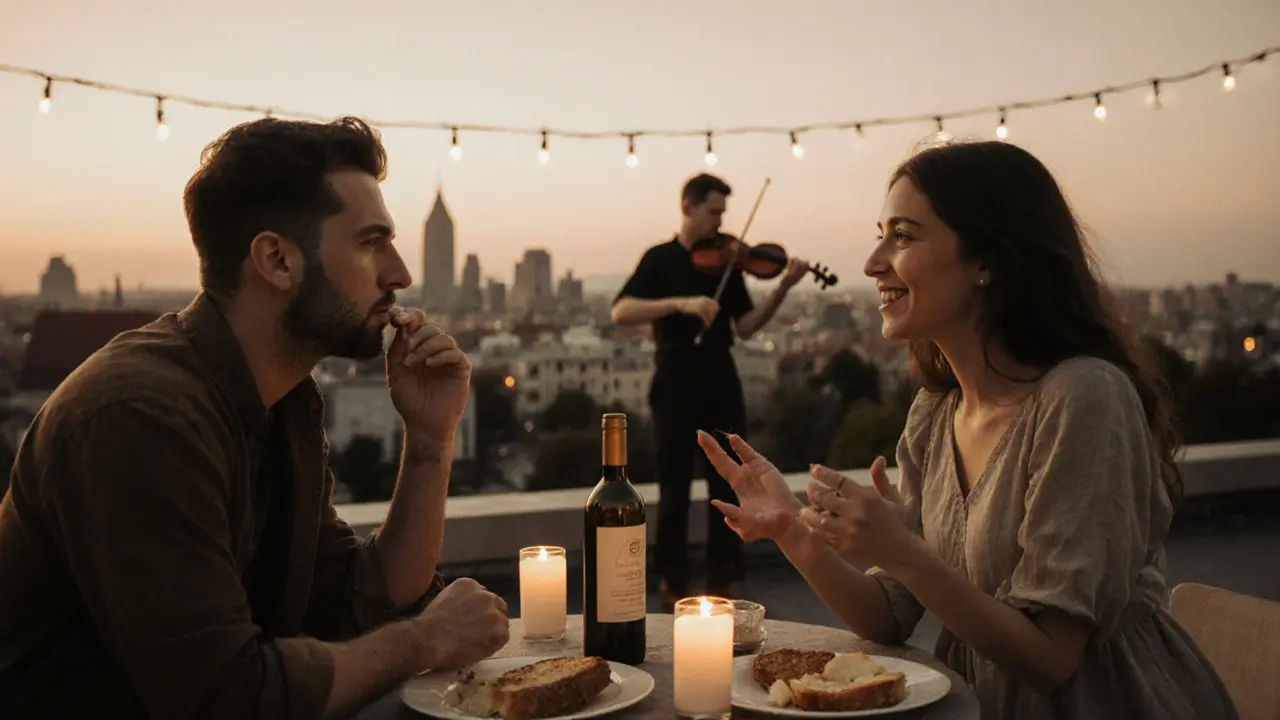
The Unspoken Rules of Traveling with a Local
If you do end up spending time with someone local, there are unwritten rules that keep things respectful and enjoyable:- Never assume she’s available for dates or intimacy-she’s not a service
- Offer to pay for your own meals, even if she insists on splitting
- Don’t ask her to be your personal tour guide for the whole trip
- Respect her schedule-she has a life outside of entertaining tourists
- If you’re staying longer than a week, invite her to something you’re doing-not the other way around
One traveler in Budapest told me he met a woman named Zsófia at a jazz club. They talked for three hours. He stayed in the city for two weeks. They met three more times-once for coffee, once for a museum, once just to walk through the city’s abandoned railway yards, which she said were her favorite place to think. He didn’t sleep with her. He didn’t ask her to come home with him. But he left with a deeper understanding of Hungary than any guidebook could give him.
It’s Not About Romance-It’s About Belonging
The real value of a ‘euro girl’ isn’t romantic. It’s emotional. Traveling alone can be lonely, even when you’re surrounded by people. You miss having someone who gets your tired sigh after a long day. Someone who doesn’t judge you for ordering the same dish three nights in a row because it’s the only thing you can pronounce.These connections are temporary, but they’re real. They remind you that the world isn’t just a list of places to check off. It’s made of people-people who live there, who care about their cities, who want to share them with someone who’s genuinely curious.
Some of the best travel memories I’ve heard from others aren’t about the view from the top of Montmartre. They’re about the woman in Lyon who taught you how to eat a croissant the right way-slowly, with butter, no jam. Or the student in Kraków who took you to her grandmother’s kitchen for homemade pierogi after you got lost on the bus. These aren’t services. They’re gifts.
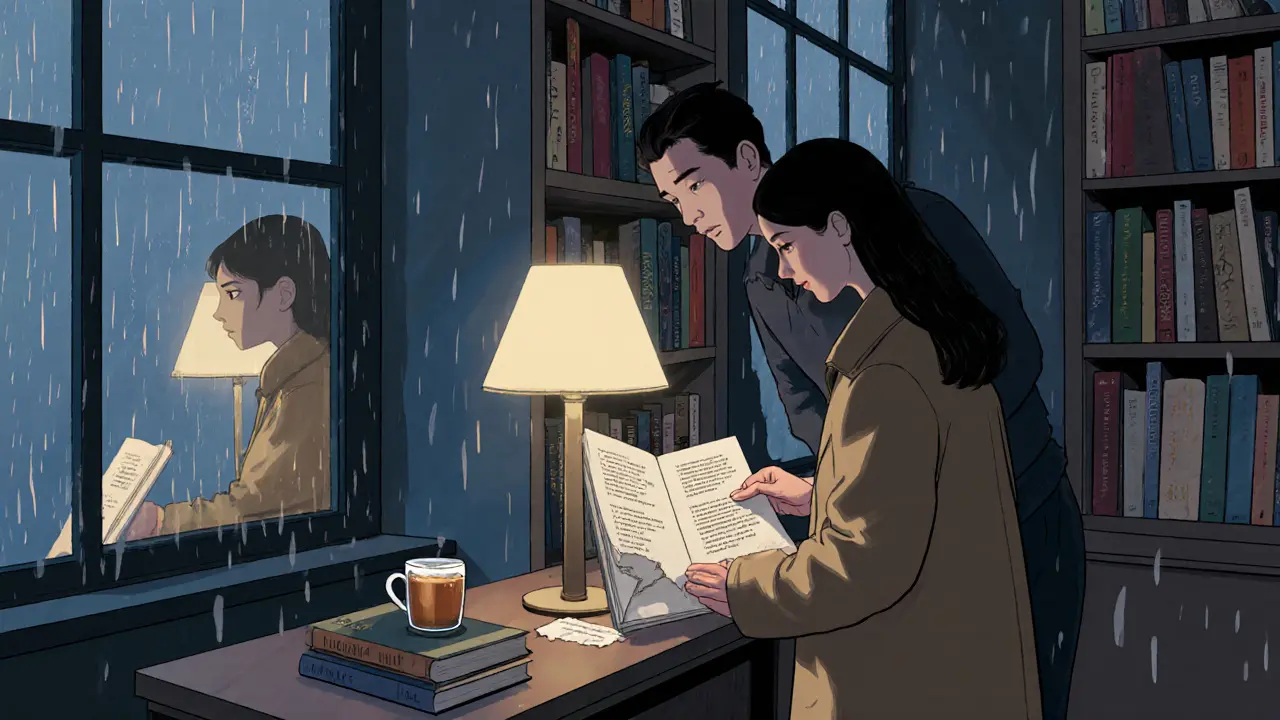
What to Do If It Doesn’t Work Out
Not every connection leads to a meaningful conversation. Some people are polite but distant. Others are overwhelmed by tourists. That’s okay. Don’t take it personally. Travel is unpredictable. You’ll meet people who don’t click, and that’s part of the process.If someone seems uninterested, don’t push. Don’t follow up with messages. Don’t try to convince them you’re different from the other tourists. Just say thank you and move on. The right connection will come when you’re not looking for it.
And if you do find someone who makes you feel at home in a foreign city? Hold onto that. Not as a trophy, not as a story to tell back home-but as a reminder that the best parts of travel aren’t found in guidebooks. They’re found in quiet moments with people who let you see their world, just for a little while.
Is it safe to travel with a euro girl?
Yes, as long as you treat the relationship like any other new connection-trust your instincts, meet in public places, and never assume anything about boundaries. A genuine connection is built on mutual respect, not assumptions. Many women in Europe travel alone and are used to meeting new people. The key is to be honest, polite, and patient.
Do euro girls expect money or gifts?
No, not if you’re approaching the interaction with authenticity. Most women who become companions for travelers do so because they enjoy sharing their culture-not because they’re looking for financial gain. If someone starts asking for money, expensive dinners, or gifts early on, that’s a red flag. Genuine connections start with conversation, not transactions.
Can I find a euro girl in any European country?
Yes, but the vibe changes by region. In cities like Berlin, Prague, or Lisbon, you’ll find more open, casual interactions. In smaller towns or more conservative areas like parts of southern Italy or rural Poland, people may be more reserved. The key is to adapt to local norms. In some places, a simple smile and a question about the local food is enough to start a conversation.
Are euro girls only young women?
No. The term is often used for women in their 20s and 30s, but many women in their 40s and 50s are just as welcoming to travelers. A retired teacher in Barcelona or a librarian in Copenhagen might be more interested in deep conversations than a younger person looking for a quick drink. Don’t assume age limits-curiosity matters more than age.
Should I try to turn this into a long-term relationship?
If it happens naturally, great. But don’t force it. Many of these connections are meant to be short-term. Trying to turn a travel companion into a long-term partner can put pressure on the relationship and ruin the authenticity of the moment. Let it evolve-or let it end. Either way, you’ll walk away with something valuable: a memory, a perspective, or a friend you can visit again someday.
Next Steps: How to Start
If you’re planning your next trip and want to meet someone who’ll make it unforgettable, here’s what to do:- Choose a city you genuinely want to explore-not just one that’s popular on Instagram
- Book a hostel or guesthouse with a common room, not a hotel
- Join one local event: a walking tour, a language exchange, a food market
- Bring a book or journal-something to show you’re open to quiet moments
- Ask one simple question: ‘Where do you go when you want to be alone here?’
The rest will follow. You don’t need a plan. You just need to be present.

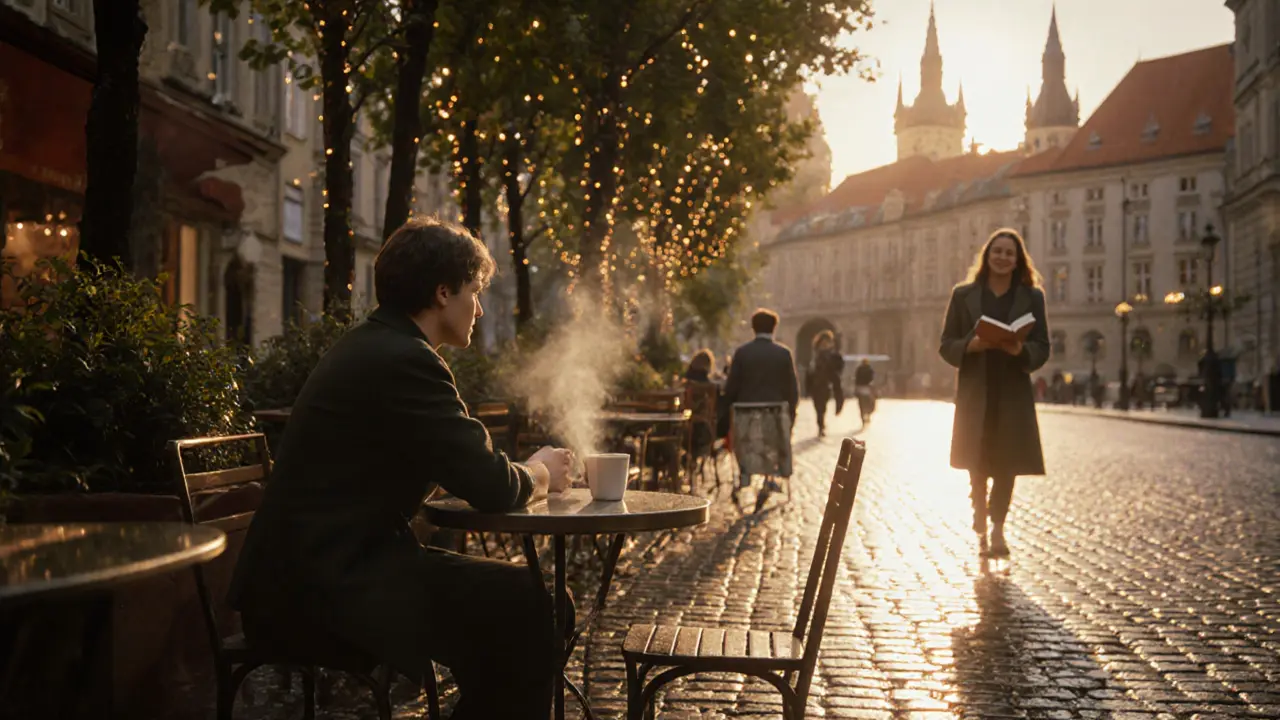

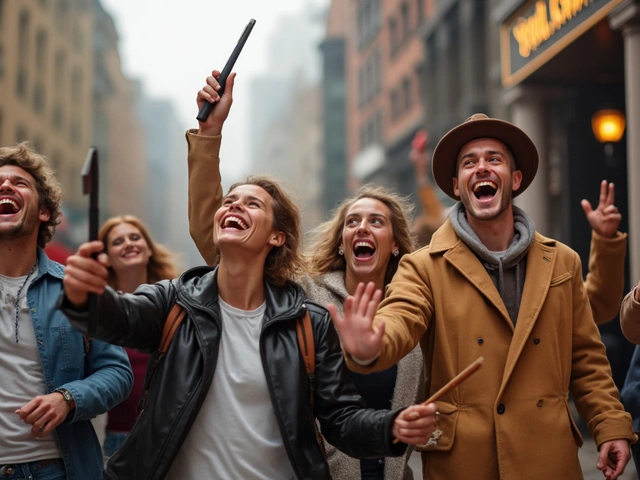

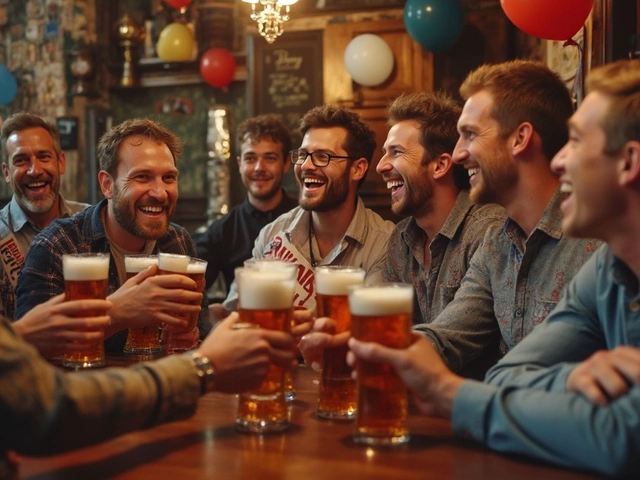
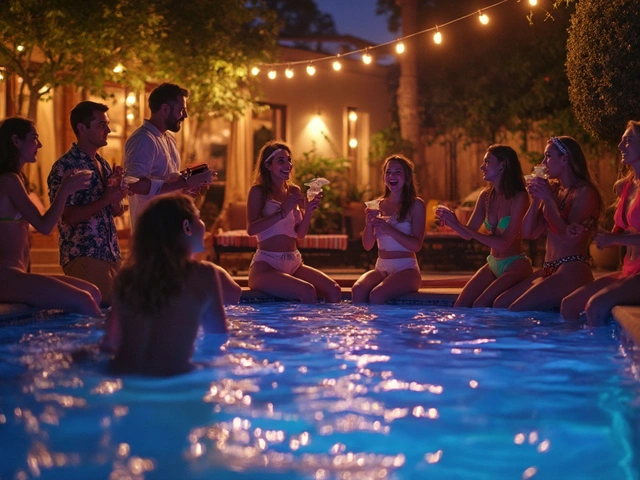
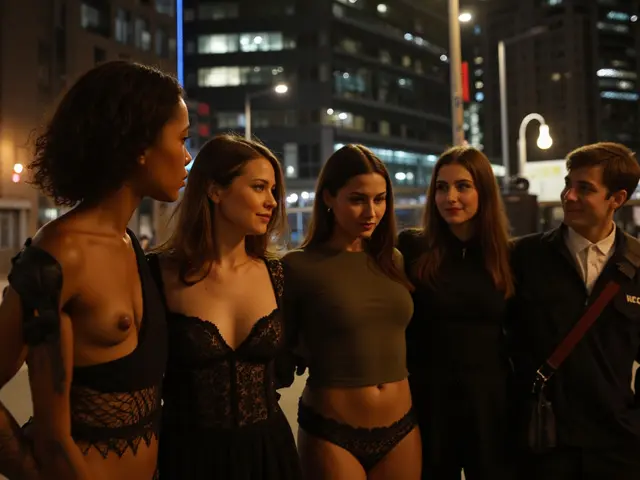
10 Comments
Jamie Williams
November 9, 2025 AT 22:32The euro girl phenomenon is just another neoliberal tool of cultural commodification disguised as authentic connection-capitalism has turned human intimacy into a travel aesthetic. You think you're 'connecting' with a local, but you're really just consuming a curated performance of authenticity designed to make you feel enlightened while your Airbnb host charges you $300 a night. The whole thing is a marketing ploy by VisitEurope.org and boutique hostels to sell more bookings. People don't wander into jazz bars for conversations-they're there because Instagram told them it's 'vibes.' You're not special for noticing this-you're just another tourist who thinks noticing the system makes you above it.
Jackie Brosio
November 10, 2025 AT 06:57I just... I don't know. I went to Prague last year and talked to this woman at a café. We didn't even speak much. She just smiled when I spilled my coffee. And then she bought me another one. I cried on the train home. I didn't even know why. I miss that feeling. Like someone saw me and didn't look away.
Max Cossío
November 11, 2025 AT 12:32Okay but what if the euro girl is actually a spy? I read this article on Medium that said the EU is using young women to gather intel from American tourists-something about cultural infiltration through emotional manipulation. I mean, think about it: they get you to open up, then they sell your travel habits to the EU bureaucracy. That’s why they’re always so chill. Too chill. Like, why does she know exactly where the best pierogi is? Who taught her that? Who is she really? 🤔
Kyle Levy
November 13, 2025 AT 08:23First, let’s correct the grammar: it’s ‘Euro girl,’ not ‘euro girl’-unless you’re referring to the currency, in which case it’s lowercase. Second, the premise is dangerously romanticized. You’re describing a transactional dynamic disguised as emotional resonance. Third, the statistic from the European Travel Commission? No citation provided. Fourth, ‘euro girl’ is a reductive, gendered term that erases the diversity of women across 44 countries. Fifth, the idea that locals are ‘gifts’ is paternalistic. Sixth, you mention ‘no pressure’ but then describe meeting scenarios as if they’re guaranteed to lead to meaningful connection. That’s not vulnerability-that’s performance. Seventh, your ‘unspoken rules’ section is condescending. Eighth, you imply that locals are emotionally available to tourists-this is ethically dubious. Ninth, the example of Zsófia? That’s a narrative trope, not a real interaction. Tenth, this entire piece is a fantasy for lonely men who think intimacy can be scheduled during a 10-day trip.
Kevin Poston
November 13, 2025 AT 20:53I just wanted to say thank you for writing this. I’ve traveled alone for years and sometimes it feels like no one gets how lonely it can be-even when you’re surrounded by people. I met someone in Lisbon last year, just a woman who shared her umbrella with me in the rain. We didn’t exchange numbers. But she told me about her mom’s bakery, and I went back the next day and bought three pastéis de nata. I still think about her. Not because I wanted more-but because for one afternoon, I didn’t feel like a tourist. You’re right. It’s not about romance. It’s about being seen. And that’s enough.
Scott Randall
November 14, 2025 AT 10:41‘Euro girl’? Please. It’s ‘European woman.’ And you’re describing a stereotype, not a person. Also, ‘easiest espresso in Prague’? That’s not a thing. You mean ‘best.’ And ‘spontaneous walk along the Danube’? That’s not unique. That’s what locals do every weekend. You’re romanticizing routine. Also, ‘she knows which metro station has the cleanest bathrooms’? That’s not insight. That’s basic urban survival. Stop writing like you’re narrating a travel ad. Real people don’t talk like this.
Thiago Gonçalves
November 15, 2025 AT 13:47This hit me right in the soul 😊 I’ve been in Berlin for 3 months now and I’ve met 3 women who just... invited me into their world. One took me to her favorite bookshop, another taught me how to make schnitzel, and the third just sat with me while I cried because I missed my dog. No romance. No expectations. Just human warmth. You’re right-it’s not about finding someone. It’s about being open enough to let someone find you. Thank you for saying this.
Tim Orrell
November 17, 2025 AT 11:33The euro girl construct is a symptom of late capitalist alienation where human connection is mediated through travel narratives. The individual becomes a vessel for the tourist’s existential void. You mistake proximity for intimacy and cultural curiosity for emotional availability. The woman in Ljubljana who shares wine on a rooftop isn’t offering you belonging-she’s performing the role of the hospitable local because the neoliberal economy incentivizes affective labor. The real tragedy isn’t that you’re lonely-it’s that you’ve internalized the market logic of connection as something to be acquired like a souvenir.
Clay Caldwell
November 18, 2025 AT 18:28I’m from Poland and I’ve met hundreds of travelers. Most don’t get it. They think ‘euro girl’ means someone who’s easy to talk to. But it’s not about being easy-it’s about being present. I’ve had tourists ask me to be their guide for two weeks. I’ve had them offer me money for coffee. I’ve had them text me three days later saying ‘we should meet again.’ I just smile and say thank you. I don’t owe them my time. But when someone asks about my grandmother’s soup? That’s different. That’s when I invite them in. It’s not about gender or geography. It’s about who listens.
anjan tiwari
November 18, 2025 AT 19:13Bro this is just dating app logic with a backpack 😂 I mean come on. You’re selling ‘authentic connection’ like it’s a product. I met a girl in Goa who taught me how to eat mango. Was she a ‘south asian girl’? No. She was just a person. Stop labeling people based on where they live. Also, why is every ‘euro girl’ so chill? Are you saying women in Europe are naturally more open? That’s racist. And why do you assume they want to hang out with you? Maybe they’re just tired of tourists. Maybe they just want to be alone. Maybe they’re not your ‘companion.’ Maybe they’re just... people.